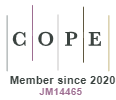To tax or not to tax robots, that is the question:
reflections about the moral choice of taxing automation
DOI:
https://doi.org/10.5585/rtj.v12i2.19315Keywords:
tributação de robôs, tributação na economia digital, tributação 4.0Abstract
The justification of the present study refers to the dilemma between whether or not to impose a tax on the labor automation process and, to what extent, such a measure can be considered fair. The theorization was built in two classic schools of moral philosophy, which offered assumptions capable of transcending their own time and guiding choices about the future of work and the role of taxation. The methodological procedure used was descriptive and exploratory. It was concluded, after analyzing the ethical theories of Rawls, Bentham and Mills, that it is imperative to establish some type of tax imposition capable of ensuring that the benefits of this new model of society are not monopolized by few and do not result in an aggravation of the inequalities historically experienced by our society.
Downloads
References
ALMEIDA, Luis Gustavo Blaskeki. A Justiça Igualitária no Estado Democrático de Direito: Entre o Contratualismo de John Rawls e a Igualdade Complexa de Michael Walzer. In Revista Faculdade de Direito UFMG. N. 66, jan/jun, 2015.
ALMEIDA, Saulo Nunes de Carvalho. MENDONÇA, Maria Lírida Calou de Araújo. Novas Morfologias de Trabalho: Proteção Legal e Desafios Pós-Contemporâneos. In Revista Pensar. vo. 24, n.02, 2019.
ALMEIDA, Saulo Nunes de Carvalho. FEITOSA, Raymundo Juliano Rego. A Tributação de “Robôs” e o Futuro do Trabalho: O Papel da Norma Tributária face à Automação in Revista Jurídica (FURB), vol. 24, n. 55, set/dez de 2020. Disponível em https://proxy.furb.br/ojs/index.php/juridica/article/view/9259/4861. Acesso em 20/01/2021.
ALMEIDA, Saulo Nunes de Carvalho. FEITOSA, Raymundo Juliano Rego. Tributação Indutora e Intervenção Econômica como Caminho de Efetivação da Proteção do Trabalhador em Face da Automação in Revista Argumentum, vol. 21, n. 03, set/dez de 2020. Disponível em http://ojs.unimar.br/index.php/revistaargumentum/article/view/1358/824. Acesso em 20/01/2021.
CADEMARTORI, Daniel Mesquisa Leutchuk. A Contribuição de Stuart Mill ao Tema da Relação Entre Liberalismo e Democracia. Revista Filosofia do Direito e Intersubjetividade. Vol. 04, 2010.
CALIENDO, Paulo. Direito Tributário e Análise Econômica do Direito. Elsevier: Rio de Janeiro, 2009.
CANTALI, Fernanda Borghetti. Inteligência Artificial e Direito de Autor: Tecnologia Disruptiva Exigindo Reconfiguração de Categorias Jurídicas. in Revista Direito, Inovação, Propriedade Intelectual e Concorrência. Vol. 04, n. 02, jul/dez, 2018.
CAVALVANTE, Jouberto de Quadros Pessoa. A Sociedade, a Tecnologia e seus Impactos nos Meios de Produção: Uma Discussão sobre o Desemprego Tecnológico. In Revista Eletrônica do Tribunal Regional do Trabalho do Paraná. N. 01, outubro, 2019.
DE FREITAS, Franchesco Maraschin. ZAMBAM, Neuro José. O Utilitarismo e o Princípio da Responsabilidade para o Desenvolvimento Sustentável. Revista Direito Ambiental e Sociedade. Vol.5, n.02, 2015.
DUPRÉ, Ben. 50 Ideias de Filosofia que Você Precisa Conhecer. São Paulo: Planeta, 2015.
GERALDO, Pedro Heitor Barros. O Utilitarismo e suas Críticas: Uma Breve Revisão. Anais do XV Congresso Nacional do Conselho Nacional de Pesquisa e Pós-Graduação em Direito, Manaus, 2006.
LEITÃO, André Studart. SILVA, Ticyanne Pereira da. Uma Análise da Dispensa Coletiva Pós-Reforma Trabalhista à Luz da Teoria do Utilitarismo. Revista da Escola Nacional da Inspeção do Trabalho. ano 3, 2019.
OLIVEIRA, Vicente de Paulo Alves. OLIVEIRA, Ugo Briaca de. Economia e (direito do) Trabalho em um Contexto de Quarta Revolução Industrial: Uma Análise Crítica da Leia 13.467/17. In Revista Percurso Acadêmico. Vol. 09, jul/dez, 2019.
PIAIA, Thami Covatti. COSTA, Bárbara Silva. WILLERS, Miriane Maria. Quarta Revolução Industrial e a Proteção do Indivíduo na Sociedade Digital: Desafios para o Direito. In Revista Paradigma. Ano XXIV, n.01, janeiro/abril, 2019.
RAWLS, John. A Theory of Justice. Revised Edition. Massachussets: Harvard University Press, 1999.
ROSSI, Fernando Henrique. A Ética na Sociedade de Consumo. Argumenta Journal Law, Jacarezinho – PR, n. 20, agosto, 2014.
ROSA, Cristian Fernandes Gomes da. Jememy Bentham e a Constituição do Conceito de Direito no Pensamento Jurídico Moderno. Revista Estudos Jurídicos UNESP. n. 20, 2010.
Oxford Economics. How Robots Change the World: What Automation Really Means for Jobs and Productivity. Junho, 2019. Disponível em http://resources.oxfordeconomics.com/how-robots-change-the-world. Acesso em 20/08/2020.
VECCHIO, Humberto Pereira. Justiça Distributiva e Tributação. Tese (Doutorado em Direito) – Universidade de Santa Catarina. Centro de Ciências Jurídicas. 2002.
WUCKER, Michele. The Grey Rhino: How to Recognize and Act on the Obvious Dangers we Ignore. SMP Trade, 2016.
Downloads
Published
How to Cite
Issue
Section
License
Copyright (c) 2023 Revista Thesis Juris

This work is licensed under a Creative Commons Attribution-NonCommercial-ShareAlike 4.0 International License.






